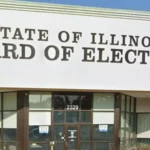
On Friday, June 23rd, the Supreme Court issued its ruling in the immigration case United States v. Texas. The suit was filed by the Attorneys General of Texas and Louisiana in the Southern District of Texas, arguing that their respective states would suffer economic damages from Biden’s immigration policies. The Supreme Court, rejecting the states’ claim to standing, ruled 8-1 in favor of the Biden Administration, with Justice Kavanaugh authoring the majority opinion.
In January 2021, the Biden administration directed the U.S. Immigrations and Customs Enforcement (“ICE”), to cease conducting any deportations except for individuals that posed a threat to “national security, public safety, and border security.” Secretary Mayorkas of the DHS issued new guidelines to shift resources for deportation only to those who are “suspected of terrorism or espionage,” “serious criminal activity,” or other similar charges.
This change in policy was apparently designed to ensure that far fewer deportations are carried out. Its consequence was to allow more illegal aliens to remain within the United States. The States asserted that they must continue to incarcerate or provide social services such as healthcare and education to illegal aliens who should be (but are not being) arrested by federal authorities. This policy by the Biden administration limits the number of deportations ICE will carry out, and maximizes the number of illegal immigrants staying in the United States, straining America’s public services.
The Southern District of Texas issued a preliminary injunction against the policy in August 2021. The Biden administration appealed to the 5th Circuit, which stayed the injunction in part in September, 2021, and ultimately reversed the stay and granted relief to Texas and Louisiana in November, 2021. After various attempts requesting stays on the injunction, as well as issuing new, similar guidelines (which the 5th Circuit found to violate the Administrative Procedures Act) the Biden administration sought certiorari before judgment at the Supreme Court. The Court ultimately heard the case on November 29, 2022 and issued their decision last week.
Writing for the majority, Justice Kavanaugh held that Texas lacked the standing to sue the Biden administration as “this Court has long held ‘that a citizen lacks standing to contest the policies of the prosecuting authority when he himself is neither prosecuted nor threatened with prosecution.’ Linda R. S. v. Richard D., 410 U. S. 614, 619 (1973).” Justice Kavanaugh, joined by Roberts, Sotomayor, Kagan, and Jackson, further argued “lawsuits alleging that the Executive Branch has made an insufficient number of arrests or brought an insufficient number of prosecutions run up against the Executive’s Article II authority to enforce federal law. Article II of the Constitution assigns the ‘executive Power’ to the President and provides that the President ‘shall take Care that the Laws be faithfully executed.’ U. S. Const., Art. II, §1, cl. 1; §3.” The Court found that because the executive has a level of discretion when enforcing federal statutes, states cannot sue them for neglecting to enforce them at a desired level.
Contesting his colleagues’ treatment of the standing issue, Justice Alito penned a fiery lone dissent. Justice Alito argued that Texas and Louisiana had proper standing to sue the Federal Government, especially in light the unprecedented, willful negligence of the Biden Administration. He said the Administration failed “to take Care that the Laws be faithfully executed,” a failure which came at the expense of the states.
Justice Alito elaborated:
“This Court has long applied a three-part test to determine whether a plaintiff has standing to sue. Under that test, a plaintiff must plead and ultimately prove that it has been subjected to or imminently faces an injury that is: (1) ‘concrete and particularized,’ (2) ‘fairly traceable to the challenged action,’ and (3) ‘likely’ to be ‘redressed by a favorable decision.’ Lujan v. Defenders of Wildlife, 504 U. S. 555, 560–561 (1992) (internal quotation marks and alterations omitted). Under that familiar test, Texas clearly has standing to bring this suit.”
Addressing the Biden administration’s politically motivated failure to enforce the laws, Alito continued:
“If States are also barred from bringing suit even when they satisfy our established test for Article III standing, they are powerless to defend their vital interests. If a President fails or refuses to enforce the immigration laws, the States must simply bear the consequences. That interpretation of executive authority and Article III’s case or controversy requirement is deeply and dangerously flawed.”
Finally, Justice Alito also highlighted the common trend of refusal of federal enforcement of pre-existing immigration law:
“the direction that ‘[u]nder no circumstance during the removal period shall the [Government] release an alien’ found inadmissible or deportable under almost any of the grounds relevant under §1226(c). §1231(a)(2). And §1231(a)(1)(A) commands that the Government ‘shall remove the alien’ within the removal period. All of our recent decisions interpreting these provisions confirm that, for covered aliens, shall means shall; it does not mean ‘may.’”
The Court’s decision in United State v. Texas will allow many criminal aliens to remain in the United States. It fails to curb the destructive refusal by the Biden White House and the Mayorkas DHS to enforce the law. The decision also signals that the “special solicitude” doctrine for the States may be in its final days. In Massachusetts v. EPA, a case decided in 2007, blue states sued to compel the EPA to regulate greenhouse gases. The Court held that the States, on account of their “stake in protecting [their] quasi-sovereign interests,” deserve loosened standing requirements. Friday’s opinion in United States v. Texas is the latest in a string of cases walking back the doctrine.
SUPPORT LANDMARK LEGAL FOUNDATION
We are truly facing existential threats to our individual rights and liberties, the Constitution, and our national character. If unchallenged, this assault on our very way of life will ruin our great nation. With your financial and moral support, Landmark is not going to let that happen without a fight. Will you join us?





